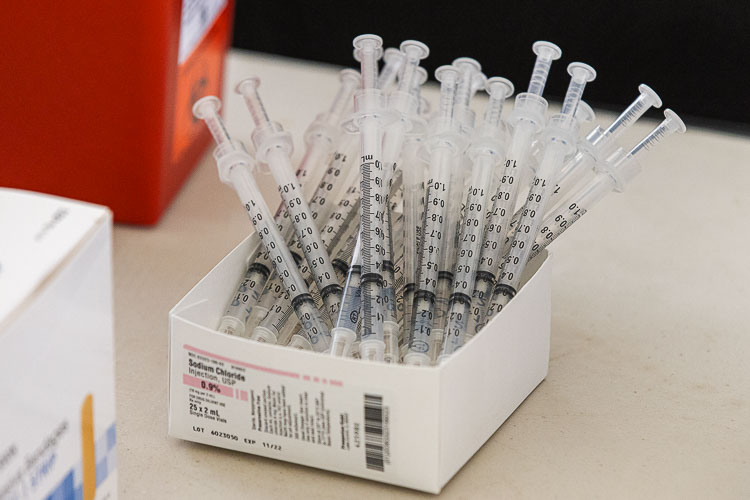Art Moore
WND News Center
The Centers for Disease Control and Prevention assures Americans that the mRNA and the spike protein it produces in COVID-19 vaccines to create an immune response “don’t last long in the body.”
On its website, the agency states: “Our cells break down mRNA and get rid of it within a few days after vaccination. Scientists estimate that the spike protein, like other proteins our bodies create, may stay in the body up to a few weeks.”
However, a new peer-reviewed study by researchers at Stanford University finds that the spike protein created by the COVID vaccines remains in the body much longer than believed and at levels higher than those of severely ill COVID-19 patients.

The Stanford researchers tested the duration of the protein in the body for 60 days and found that it lasted at least that long.
Dr. Robert Malone, the key developer of the mRNA technology in the Pfizer-BioNTech and Moderna vaccines, said the findings were “buried” in the study, which was published by the journal Cell.
He described the results as a potential “health public policy nightmare” in an analysis on his Substack page.
Unlike typical vaccines, which use a live virus that has been attenuated, or weakened, the messenger RNA vaccines carry genetic material that instruct cells how to produce the spike protein, which activates the body’s immune response and produces antibodies.
Malone said that having worked with mRNA for decades, he found the persistence of the synthetic spike protein in lymph node germinal centers to be “highly unusual.”
The study quantitatively measured spike protein levels in plasma after vaccination. And it turned out that the levels are higher than the levels observed in a person with a severe COVID-19 infection.
Malone wrote that “the fact that this (is) only now being discovered, or if it was known, released to the public is criminal in my opinion.”
“This should have been characterized long ago, including prior to beginning human clinical trials,” he said.
The mRNA vaccines, he further explained, use a modified chemical called pseudouridine to encode the spike protein and unique nanoparticles to deliver it. It’s a system, he said, that was approved “without fully understanding the implications and without the FDA requiring a complete pre-clinical toxicology regulatory package, including long-term follow-up, as is done with any other unique chemical or adjuvant additive.”
Prominent cardiologist Dr. Peter McCullough, an epidemiologist, said in a recent podcast it’s known that the vaccines have a “dangerous mechanism of action,” which is “the production of the spike protein.”
“The spike protein is what make the respiratory infection lethal, and it follows that in some people excessive production of the spike protein in a vulnerable person would lethal after a vaccine,” he said.
McCullough has found from his review of studies that the lipid nanoparticles — which deliver the spike protein in the mRNA system — “go right into the heart.” He believes that’s why studies indicate a higher-than-expected rate of myocarditis, particularly in boys, associated with the vaccines. And the studies show that the myocarditis produced by a COVID-19 infection tends to be mild and “inconsequential” while the myocarditis caused by the vaccine can be severe.
“When the kids get myocarditis after the vaccine, 90% have to be hospitalized,” McCullough said in a podcast interview in December. “They have dramatic EKG changes, chest pain, early heart failure, they need echocardiograms.”
Malone said it’s possible that the chemical pseudouridine in the vaccines is causing a reaction that allows mRNA to migrate to the lymph nodes and throughout the body, as non-clinical Pfizer data from Japan suggests.
“I do not know how to write this more strongly,” Malone said. “This technology is immature.”
He noted the World Health Organization has approved six COVID-19 vaccines that are more traditional, all of which the U.S. government could license.
“These genetic vaccines are not the only option.”
Source: www.clarkcountytoday.com/news/health-nightmare-dr-robert-malone-spotlights-study-on-mrna-spike-protein/
